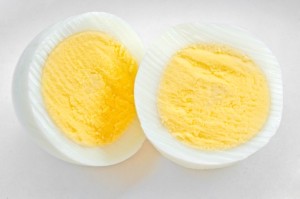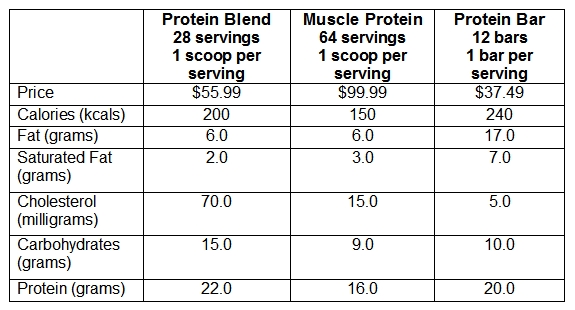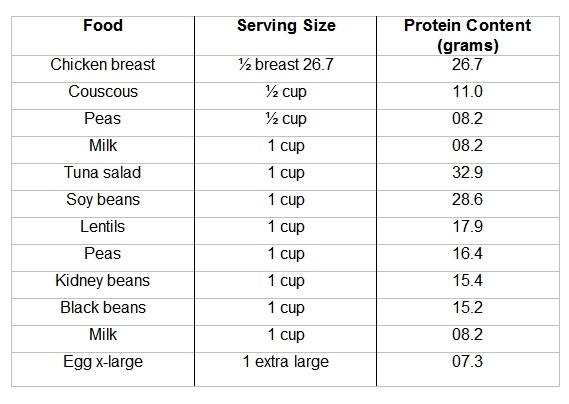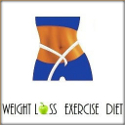-
The Scoop on Protein Powders
Tuesday, December 23rd, 2025by Brigid Titgemeier, M.S., Public Health Nutrition
Protein supplements claim to help you build lean muscle, increase strength and burn fat – just by adding a few scoops of powder to a vanilla-flavored shake.
The claims seem convincing when slapped on the side of a protein tub, but unfortunately they do not spell out all of the facts.
To build more muscle, the body needs to be in a positive net muscle-protein balance, meaning that protein synthesis is greater than protein breakdown. The key is reaching an optimal intake of protein that helps the body build muscle without going overboard.
Consuming too much protein can lead to dehydration and added stress on the kidneys. Too much of any macronutrient – whether it’s carbs, protein, or fat – also ends up being stored as fat.
Before you buy further into the ever-present protein craze, gain a better understanding of what you are putting your valuable dollars and calories towards.
Most Athletes Get Enough Protein through Diet Alone
 Truth be told, most athletes and fitness enthusiasts ingest sufficient protein from the foods in their diet. The amino acids that are sold at top dollar can also come from a standard hard boiled egg, grilled chicken sandwich, or a plain old glass of milk.
Truth be told, most athletes and fitness enthusiasts ingest sufficient protein from the foods in their diet. The amino acids that are sold at top dollar can also come from a standard hard boiled egg, grilled chicken sandwich, or a plain old glass of milk. Upon entering the body, the protein from food gets broken down to amino acids and peptides. Some evidence shows that isolating certain proteins like whey or casein from dairy products increases the body’s absorption rate, but you want to make sure you aren’t getting too much.
Since Americans generally consume plenty of protein without any extra effort, additional powders and supplements can be excessive. Take a timeout from these supplements and get the real scoop on protein.
Why More Protein Doesn’t Mean More Muscle
More protein may not equal more muscle when protein intake exceeds sufficient levels. A 2005 study analyzed protein oxidation from chronic protein supplements in elite athletes.
The participants were divided into three groups that adhered to a low, medium, or high protein diet. The three diets consisted of 7%, 14%, or 26% of respective total caloric intake.
The males who consumed the most protein (3.6 grams per kilogram of body weight) had the lowest protein synthesis compared to the group with the lowest protein intake (0.8 grams per kilogram). Additionally, the high protein group had the highest protein oxidation compared to the other groups.
In summary: greater protein intake did not equal greater results.
Read the Labels on Protein Supplements
Many of the popular brands of amino acids, beef amino pills, or other supplements contain more than just protein. Don’t overlook the extra calories, fat, cholesterol, and added sugar that can increase your risk of heart disease, stroke, and diabetes.
Analyze the labels with a critical eye so that you know what you are scooping into your body:
Don’t Cut the Carbs When Building Muscle
In order for the body to use amino acids for muscle protein, adequate carbohydrate consumption is essential. Healthy carbohydrates such as whole grains, fruits, and vegetables are the brain’s primary source of energy.
Depleted levels of carbohydrates can result in decreased endurance, performance and increased oxidation of amino acids. Attempt to get 45 – 65% of your daily calories from whole grains and healthy carbohydrates!
Get the Most From Your Protein
When it comes to protein recommendations, the acceptable macronutrient range for a healthy adult falls within 10-35% of overall calorie consumption. The RDA for healthy males, 19 years and older, is 56 grams of protein per day and for healthy females, 19 years and older, is 46 grams per day.
Protein needs vary with each individual – the requirements for athletes and strength trainers are still being debated. It appears that when enough calories and carbohydrates are consumed, 1.0 grams of protein per kilogram of body weight is sufficient for low to moderate intensity endurance activity.
Elite athletes in top sports have higher protein needs which appear to cap off at ~1.6 grams per day.
This is easy to achieve from a well-balanced diet, but if you feel the need to add a protein powder to your routine, do so within one hour of your workout for optimal muscle uptake.
Here is a general guide of high-protein foods that will help you meet your protein needs:
To Build More Muscle, Focus on Optimal Protein Intake
The protein-takeaway is simple: muscle synthesis does not endlessly continue when more and more protein enters the body.
Protein’s effectiveness plateaus at a certain point so strive for an optimal intake without overdoing it.
It wouldn’t hurt to consult with a Registered Dietitian Nutritionist (RDN) to find out more about your individual needs.
(published July 7, 2013)
 Brigid Titgemeier is a nutrition assistant at the Cleveland Clinic Wellness Institute. She is a contributor to health and nutrition articles for the Huffington Post, U.S. News and World Report, YouBeauty, and other web outlets. Brigid completed her Masters in Public Health Nutrition and dietetic internship at Case Western Reserve University in Cleveland, Ohio. Her professional interests include plant-based nutrition, field-to-fork initiatives, culinary nutrition, and corporate wellness.
Brigid Titgemeier is a nutrition assistant at the Cleveland Clinic Wellness Institute. She is a contributor to health and nutrition articles for the Huffington Post, U.S. News and World Report, YouBeauty, and other web outlets. Brigid completed her Masters in Public Health Nutrition and dietetic internship at Case Western Reserve University in Cleveland, Ohio. Her professional interests include plant-based nutrition, field-to-fork initiatives, culinary nutrition, and corporate wellness.




